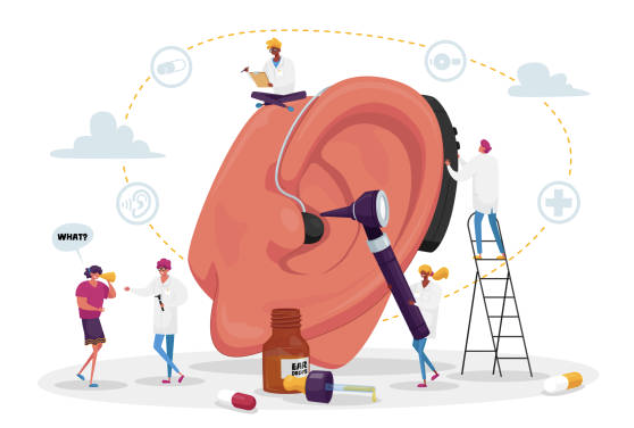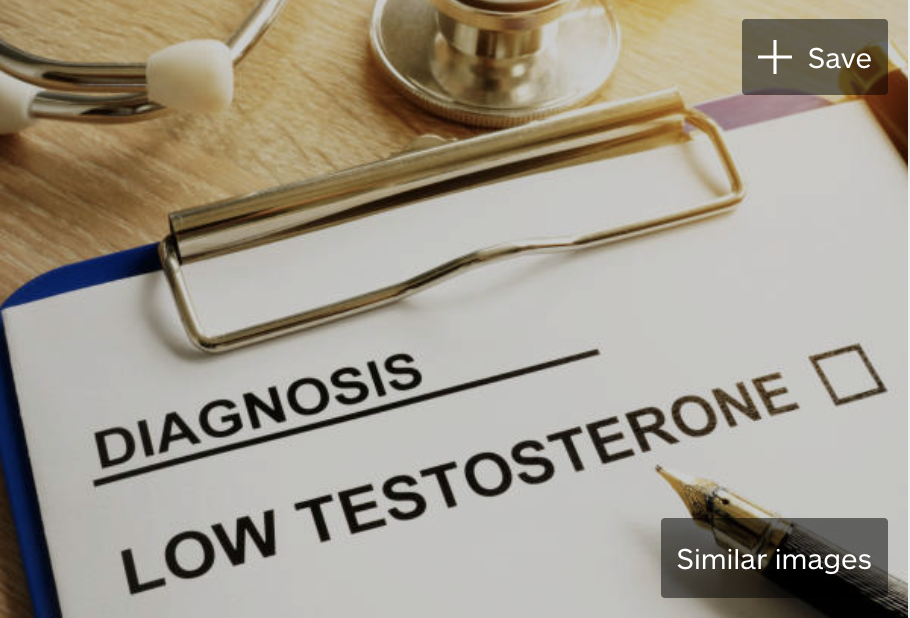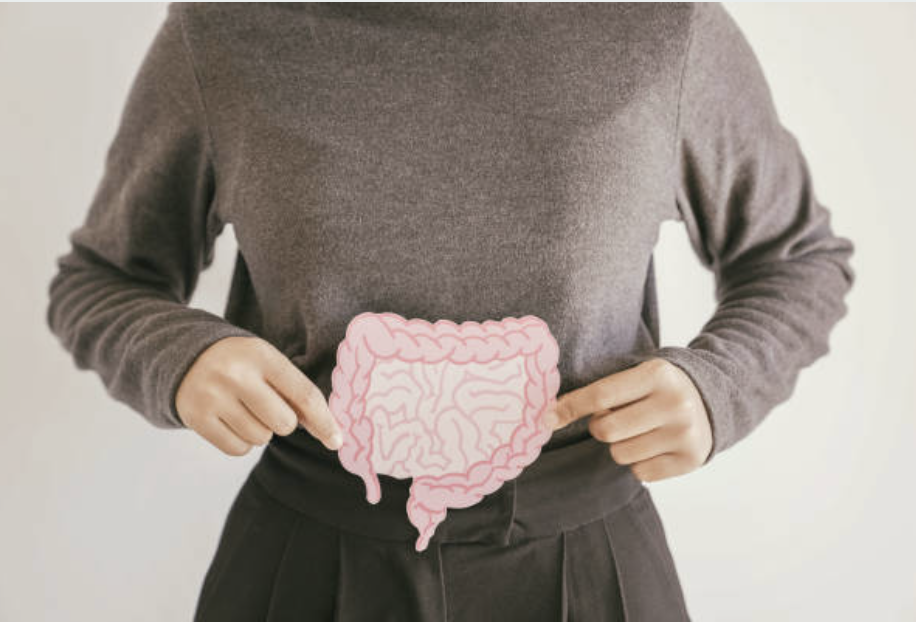
“Wait, What Did You Say?” — Why Hearing Loss Is the Dementia Risk Nobody’s Talking About
Let’s be honest: hearing loss is not exactly the sexiest topic in women’s health. We’ll talk about hot flashes, dry vaginas, and hormone patches before we’ll admit we’re saying “huh?” way more often than we used to. But here’s the thing: your hearing is more than just volume control, it’s brain protection. And ignoring those early signs of hearing loss might actually accelerate something much scarier than asking someone to repeat themselves… dementia. So, before you roll your eyes and reach for your readers, hang with me. This is one midlife health topic that actually deserves your full attention…

The 7 Biggest Myths About Hormones (That I Heard This Week Alone)
Hormones: they’re confusing, they're chaotic, and everyone seems to have an opinion about them, especially when you hit your 40s. This week alone, I heard seven persistent myths that made me want to scream into a bottle of progesterone. If you're on hormone therapy or considering it, these myths may sound familiar. Let’s set the record straight. Myth #1: You can’t start hormones until you’ve gone 12 months without a period…

What’s the Deal with Prometrium (Progesterone)?
You’ve asked about progesterone therapy so I thought I would do a quick FAQ on Prometrium as it's so commonly prescribed. Prometrium®️ = micronized progesterone that is "chemically identical to progesterone of human ovarian origin." This means it's a bio (or body) identical hormone therapy. 🙌 It is not a progestin (synthetic). 👎 The prescription progestin medication is Provera. It’s also called medroxyprogesterone acetate. Despite the word ‘progesterone’ in there - it’s not. Quick Notes on Prometrium…

WTF Is A Hot Flash?
Isn’t it so rude when you’re sitting there minding your business and suddenly, out of nowhere, the surge of heat comes from your inner core!? Like…how? And why? You’re not alone. Studies estimate that over 70% of women going through the menopausal journey experience what’s called “vasomotor symptoms.” This is a fancy term for hot flashes and/or night sweats. In fact, some women experience these symptoms for YEARS - the average being 7.4 years depending on the woman. In this article, I cover…

Can You Stand On One Leg?
You’ve heard me talk about longevity and healthspan. Longevity is how long you’ll live. Healthspan is how WELL you’ll live. My goal is for you to live a long, healthy, happy life! There are tests that identify specific markers related to potential chronic disease risks - think of cholesterol, glucose, and the inflammatory hsCRP. What about other types of tests? It turns out, there are some physical tests that are related to longevity and your health…

To Testosterone or Not to Testosterone?
There seems to be a lot of controversy around testosterone replacement. It is billed as the solution for low sex drive, building muscle, and improving mood. Yet, not all women notice a difference when they supplement and the guidelines are specific that it’s only indicated for hypoactive sexual desire disorder (HSDD). In fact, the Global Consensus Position Statement on the Use of Testosterone Therapy for Women states “Testosterone therapy, in doses that approximate physiological testosterone concentrations for premenopausal women, exerts a beneficial effect on…

When Is HRT Actually Indicated?
PHEW! There is some serious controversy around this especially as there are the guidelines and then there are clinical experiences or new research articles not yet included in the guidelines. When it comes to estrogen in particular, I want to outline what is recommended and what is FDA approved. Do keep in mind that a guideline is not a law - this piece of advice was given to me by an oncologist (believe it or not). However, it’s a solid place to start if you’re considering hormones. Right now, the Menopause Society...

Do You Need DHEA?
DHEA and DHEA-S are the most abundant steroid hormones floating around in your body! They are considered androgens and are made predominantly by your adrenal glands and your ovaries. DHEA is a “pro-hormone” or “precursor” that goes on to make hormones known as androstenedione and androstenediol. These two “A” hormones can then make testosterone, estrogens, or other downstream androgen hormones. Think of DHEA as being near the top of the funnel for your hormone production!

Explaining Your Progesterone Options
Whether it’s time to start progesterone, you’re considering it, or just wondering about your options, you’re in the right place! Progesterone is a hormone made predominantly in your ovaries after ovulation. It does a lot in the body but it’s primarily known for its positive effects on your uterus and the calming effects on your brain. If you’re not ovulating anymore, or if you’re not ovulating as strongly as you once did, your progesterone levels can decline. Generally speaking, most hormone societies and laboratories say…

At What Age Should You Stop Your Hormones?
Years ago, I was taught in medical school that women should be on the lowest dose of hormones for the shortest amount of time. For many women, this was a period of 5-10 years then they would stop. I couldn’t understand why they had to stop as many of their symptoms would return! Imagine starting hormones at 45 years old and by 55 years old, giving them up. No surprise when they called reporting insomnia, weight gain, hot flashes, brain fog, mood changes, and more. Plus, increasing the risk for cardiometabolic disease, bone loss, and dementia…

Should The Menopause Definition Get Updated?
“Recognition that menopause, for most women, is a natural biological event, does not exempt the use of interventions to alleviate symptoms. Optimising health at menopause is the gateway to healthy aging for women.” Researcher Susan Davis, Monash University Women’s Health Research Program. Woo! Preach. However the treatment looks (hormones or not), this transition needs addressing for our long term health. In addition, their team are proposing a new definition of menopause that I personally love. They suggest instead of focusing everything around menstruation (or not), we instead focus on the ovaries and that menopause is the “final cessation of ovarian function.”

Surgical, Early, or Premature Menopause
Recently on Instagram, I asked what questions you wanted to know from my interview with brain researcher, Dr. Lisa Mosconi. I received SEVERAL questions around surgical, early or premature menopause and if #allthethings still applied here too. The answer is a resounding YES! Let’s define them for a second.

Annoying Intestinal Health Changes in Perimenopause
Here’s an interesting fact: You are more microbial cells than you are human cells in your body! Every time I read or hear that, it blows my mind. You have several microbiomes actually. In your intestines, on your skin, in your mouth and sinuses, and your vagina. Unfortunately, as you head into perimenopause and then menopause, the decline in estradiol really impacts it for the worse! It’s annoying and not fair.

Is It Still Perimenopause Without Hot Flashes?
Recently, I was talking with integrative gynecologist, Dr. LaKeischa MD, on her Hormone Hotties Podcast about metabolic syndrome. This is important to discuss as many women think the main symptoms of perimenopause are hot flashes or night sweats. In fact, I’ve seen some doctors refuse to prescribe any hormones to a woman in perimenopause if she didn’t have hot flashes. This is absurd as there are some 100+ signs and symptoms associated with your hormonal transition, some of which you may NOT feel! This includes metabolic syndrome.

Your Mental Health and Perimenopause
Feeling moody? Irritable? Depressed? Less interested? More anxious? Less connected? Less confident or lower self worth? And has all of this been happening or worsening since you’ve entered into perimenopause or menopause (even surgical menopause)? In November 2023, Cambridge University Press published an articled titled, “Severe mental illness and the perimenopause.” I’m so grateful that more write-ups like this are happening to educate women! In perimenopause, hormones such as estradiol, progesterone, and testosterone start changing for the worse leaving us with changes in our brain hormones like DHEA, serotonin, oxytocin, GABA, and dopamine. While you might not have heard of some of these hormones before, they play a huge role in your mood!

3 Myths about Menopause for World Menopause Day
On October 18th, we celebrate World Menopause Day which is pretty cool except I personally feel we should be celebrating this huge transition every day! And why not? You’re going to spend 1/3 to ½ of your life in menopause! That’s a big deal! Menopause is officially defined as ‘once you have gone twelve consecutive months without a period and you are of an appropriate age.” At that thirteenth month, you’re crowned menopausal. This doesn’t mean your symptoms stop, but your period did and that’s the official determination. There is a lot of misinformation around menopause that I want to help clear up. This is unfortunate as all women go through it - we can’t stop it - so we might as well do it with our eyes wide open!
